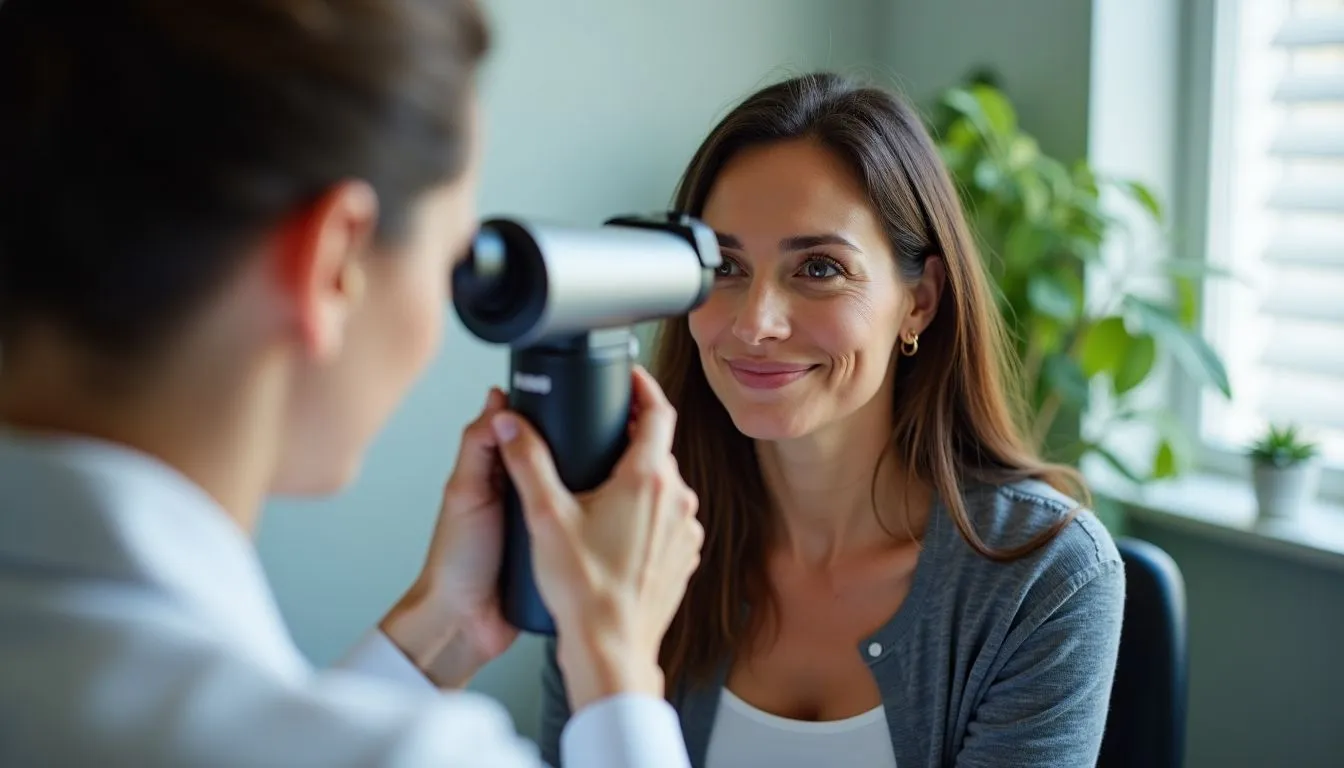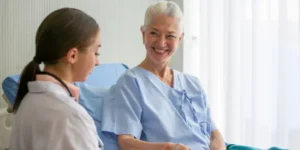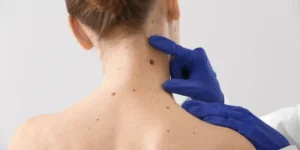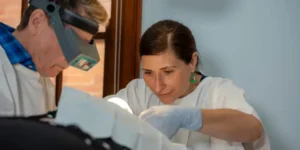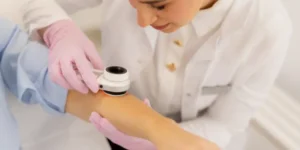Are you worried about skin spots that might be cancer? Finding the best skin check Brisbane has to offer is key to your health. Australia has the highest skin cancer rates in the world, with Queensland being a hot spot due to its sunny climate.
This guide shows you top skin cancer clinics in Brisbane where skilled doctors perform thorough skin checks.
Top Skin Check Clinics in Brisbane
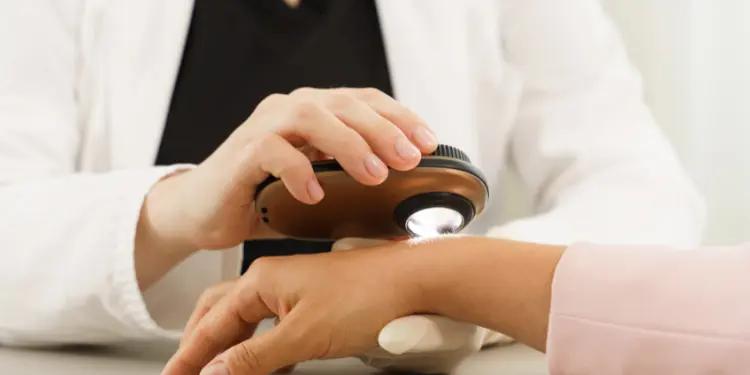
Now that you know why skin checks matter, we explore top clinics in Brisbane. Selecting the right facility may change outcomes. Each clinic offers advanced digital imaging and clear explanations. They use state-of-the-art tools to spot non melanoma skin cancers and solar keratosis at an early stage.
| Clinic Name | Location | Key Features |
| The Skin Cancer Hub | 61 Ipswich Rd, Woolloongabba | Purpose-built for skin cancer detection Doctors with specialized training On-site operating theatres No referral needed Complete care from screening to treatment |
The Skin Cancer Hub stands out with a complete approach. It offers high-level screening and treatment in Woolloongabba. Local clinics use digital imaging to track changes over time. Full-body photography helps compare past and present images.
For example, The Skin Cancer Hub offers full-body checks with dermatoscopic imaging and same-day biopsies.
Brisbane’s humid climate raises skin cancer risks. Local centers adjust their methods to meet these challenges. Many provide guides on sun protection to cut down on sunburns. They cover care standards and health and safety at every visit.
A good clinic makes you feel at ease. Top centers respect your privacy while checking all skin areas. They explain findings and next steps in clear terms.
Access matters, too. Clinics with flexible hours and short wait times make regular screening realistic. Many centers send reminders to help you stick to your skin care routine.
Services Offered at Our Skin Check Clinics
- Full Body Skin Checks – Doctors examine every part of your skin for unusual spots or marks. Special tools reveal tiny details.
- Mole Documentation – This service photographs all your moles. It tracks changes over time and aids early detection.
- Skin Biopsies – If something unusual is found, a small sample is taken. The lab tests confirm if it is cancer.
- Surgical Removal – Some clinics remove skin cancers on-site. They use safe surgical procedures for removal.
- Non-Surgical Treatments – Certain centers offer options like photodynamic therapy (PDT). This light treatment helps manage non melanoma skin cancers.
- Total Body Photography – This creates a complete record of your skin. Doctors use these images to spot new or changing moles.
- Treatment for Actinic Keratosis – Rough, scaly patches can turn cancerous. Clinics treat ak with creams or freezing methods.
- Basal Cell Carcinoma Treatment – This common skin cancer requires prompt care. In-clinic procedures remove these growths safely.
- Melanoma Diagnosis and Care – The most serious skin cancer gets full attention. Clinics detect melanoma early and plan treatment.
- Solar Keratoses Treatment – Sun spots that may lead to cancer are treated. Doctors use freezing or creams to clear them.
- Medicare Rebate Help – Staff explain which costs Medicare covers. This makes skin care more affordable.
- No-Referral Access – Centers like The Skin Cancer Hub let you book directly. No extra doctor visit is needed.
These services span many steps in skin care. They help spot and treat non melanoma skin cancers early. They also guide choices on surgical procedures and even reconstructive work when needed. In Australia, clinics perform over 19,000 biopsies each year.
Risk Factors and Prevention
Brisbane basks in abundant sunshine. Too much UV light can harm your skin. People with fair skin or a family history of skin cancer face higher risks. Wearing protective clothing and sunscreen cuts these risks. It is wise to avoid indoor tanning and guard against sunburns.
Benefits of Regular Skin Checks in Brisbane
Regular skin checks save lives. Small skin cancers are easier to treat when caught early. Treatment can be simple and leave few marks. Early checks usually cost less than major cancer care later. Patients gain peace of mind with each visit. We should discover the importance of early detection.
Many clinics now use total body photography to track changes over time. This method uncovers new or changing moles. Early detection can push survival rates over 90% for local melanoma. A biopsy-to-treatment ratio of 3.1 shows that one in three biopsies is cancerous.
Diagnostic Accuracy Benchmarks
Australian skin cancer clinics remove about 28.6 benign naevi for every melanoma detected. This shows that checks are detailed and careful. The figures match those seen in clinics overseas.
The ratio highlights the precision of examinations. It reflects the effort doctors make to catch cancer early. Such benchmarks help maintain high care standards.
Economic Impact and Screening Practices
Skin cancer care costs a lot. Over 1.1 million Medicare-funded non melanoma treatments occur each year—about 3,000 treatments daily. The economic burden is significant for the community.
Screening practices differ. Guidelines advise skin checks for high-risk groups, such as previous melanoma patients, rather than mass screening. This focus helps save money and direct care to those who need it most.
Conclusion
Caring for your skin is essential in sunny Brisbane. The Skin Cancer Hub offers top doctors and modern tools for skin checks. Regular checks detect skin cancer early. They help avoid major procedures and keep treatment simple.
What to Expect During Your Skin Check
You feel welcome at a quality clinic. Friendly staff greet you with warmth. The process begins with a visual inspection using digital imaging and total body photography. Doctors examine all skin areas and explain any concerns clearly.
They discuss possible surgical procedures or excisional biopsies if needed. They also review your medical history to guide care. Doctors also map moles with digital imaging, tracking changes over time. On average, 29 benign lesions are removed for each melanoma detected.
How to Prepare for Your Skin Check
Be ready for your check. Here are some steps to follow:
- Sleep well the night before.
- Note any skin changes you observe.
- Write down your questions.
- Review your medical history.
- Wear comfortable, loose clothing.
- Plan to arrive a bit early.
- Stay calm and focused.
- Mention any symptoms you feel.
Patient Experiences
Many patients share positive feedback. One client said, “I appreciated the clear explanations and caring approach during my skin check. The professional manner of the team eased my concerns.” Patients feel listened to and cared for. They often leave with a sense of relief.
Many clinics offer free billing for pensioners and concession cardholders. Local spots are easy to get to, with good parking and public transport options.
Frequently Asked Questions
Q: How often should you have skin checks?
A: Annual skin checks are recommended for most individuals, especially for those with increased risk factors.
Q: Is a referral needed to book a skin check?
A: Many clinics, including The Skin Cancer Hub, offer direct booking without a referral.
Q: What services are available during a skin check?
A: You can expect a full body examination, digital imaging, and, if necessary, a skin biopsy for further analysis.
About The Skin Cancer Hub
Located at 61 Ipswich Rd in Woolloongabba, our new purpose-built clinic focuses on skin cancer detection, diagnosis, and treatment. With modern equipment, dedicated operating theatres, and treatment rooms, we offer examination, diagnosis, and treatment in one location.
Staff here include doctors with postgraduate qualifications in skin cancer, such as Dr. Steele. On-site surgical facilities help cut wait times for excisions and repairs.
Methodology and Transparency
Clinic selections are based on service offerings such as digital imaging, total body photography, and the expertise of skilled skin cancer doctors. Information was gathered from public sources and verified with reliable studies.
Clinics follow AIHW guidelines, with melanoma rates rising by 120% since 1982. A consultation-to-biopsy ratio of 1.79 shows careful checking.
Disclaimer and Author Information
This information serves educational purposes only. It should not replace professional medical advice. The content reflects current understanding of skin cancer prevention and treatment.

